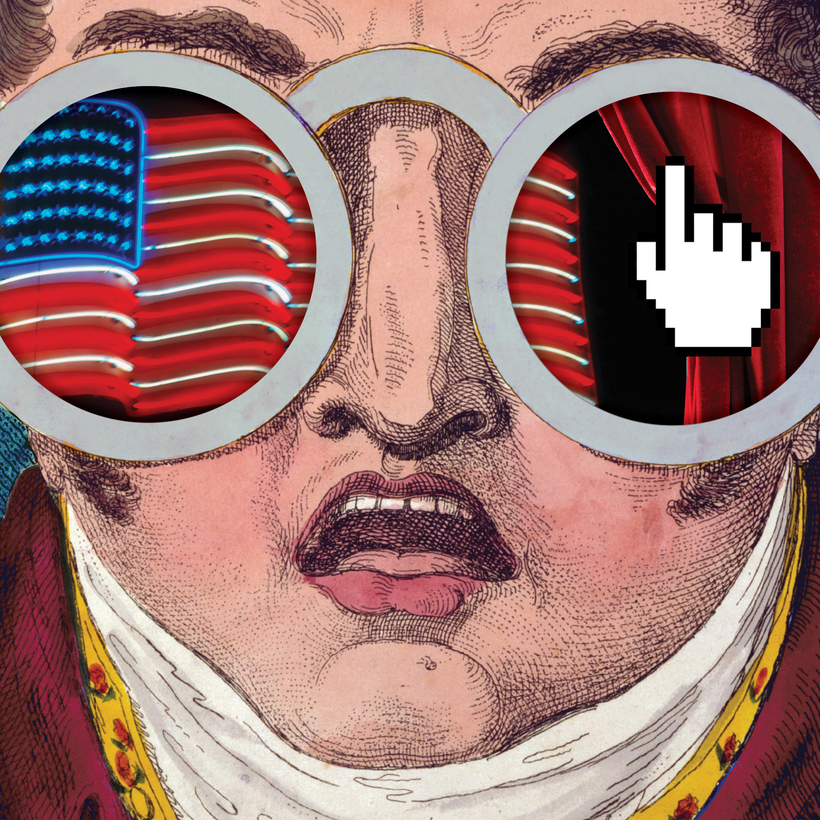When I was in the thick of it, we were in one of the heydays of American journalism. Newspapers such as The New York Times and The Washington Post, along with a handful of magazines, like Rolling Stone, Vanity Fair, and The New Yorker, stimulated and curated a national debate that was spirited, sane, and fact-based. We were home to an astonishing gathering of talent. Our vision and sense of mission catalyzed readers into a community with knowledge and purpose.
Under the banner of the First Amendment, I sent out my warriors—Hunter S. Thompson, Richard N. Goodwin, P. J .O’Rourke, William Greider, and Matt Taibbi, among others—to cover national affairs and a dozen presidential elections. They took wild liberties in their prose, but we diligently observed the rules about truth and malice—the price of free speech.
In my 50 years leading Rolling Stone, I had one major journalistic failure, when we neglected to rigorously vet a story about an alleged sexual assault at a University of Virginia fraternity house in a long investigative piece on the broader epidemic of rape on college campuses. It was singularly my worst moment as an editor.
Around this time, the rapidly declining profitability of Rolling Stone and the magazine industry as a whole made it clear that the Internet platforms had become a threat, against which we were helpless. They had limitless resources, technical skills beyond our understanding—and governmental exemption from obeying the libel laws.
The Supreme Court is now considering two cases that may affect the lack of accountability that has long nourished the impunity and amorality of these platforms.
Texas and Florida passed laws that restrict the ability of tech companies to moderate their users’ postings, worried that such editorial judgments will disproportionally squelch conservative voices. They are correct. The fanatical right has created a cesspool churning with hatred, slander, and poison. And the publication and dissemination of their disinformation on social media legitimizes and mainstreams the hatred, lies, and conspiracy theories that are driving our politics today.
Trade groups representing the Big Tech companies have defended the companies’ right to exercise discretion—and limit disinformation—by invoking the press freedoms in the First Amendment. “Just as Florida may not tell The New York Times what opinion pieces to publish or Fox News what interviews to air,” their lawyers told the court, “it may not tell Facebook and YouTube what content to disseminate.”
In other words, Facebook, YouTube, et al. claim all the rights and privileges of the First Amendment while shirking the duties and responsibilities. Because unlike The New York Times, or Rolling Stone, or Air Mail, they are not liable for what they publish, thanks to Section 230 of the 1996 Communications Decency Act—a ridiculously overbroad and outdated law that must now be thrown out.
The original conceit behind Section 230 was that tech companies were not publishers of content but merely providers of “pipes”—innocent high-tech plumbers!—and so should be treated like Con Edison or the telephone company. In reality, they are pipes, publishers, monopoly capitalists, spy networks, and a whole lot more all bundled together.
So how can we keep the social-media pipes open while enforcing rules against libel and willful disregard of the truth? Let people publish their sickest fantasy or The Protocols of the Elders of Zion on their own blogs and Web pages. (They can’t hide behind Section 230.) But when commercial public platforms decide to recirculate, amplify, and empower such stuff by algorithm or human selection, then they must obey the law, whatever the cost, like every other publisher in the U.S.
Section 230’s theoretical purpose—to shelter the Internet in its infancy—was served long ago. Today, the Captains of the Internet hardly need shelter. What they need instead is to develop a sense of social responsibility in the form of privacy protections, checks on restraint of trade, and safeguards for children and public health. (Along with the gun industry, tech is one of the few businesses in America that has immunity from product-safety laws.)
Just as magazine publishers for years have absorbed proportionately higher expenses for research, fact-checking, and libel review in their operating budgets, the tech companies can foot the bill to monitor their legal risk. Windfall profits is one resource they do not lack. Sure, they will argue that it’s simply too expensive to fix, monitor, re-code. But let’s not forget, these same companies spent billions to develop artificial intelligence. When Justice Kavanaugh asks if we risk “crash[ing] the digital economy,” you’ve got to wonder if he is living in the real world.
The original conceit behind Section 230 was that tech companies were not publishers of content but merely providers of “pipes.” In reality, they are pipes, publishers, monopoly capitalists, spy networks, and a whole lot more all bundled together.
The Internet was originally developed by the government, with the people’s money, at DARPA, and underwritten for years with research grants, subsidies, enormous contracts, and tax reductions. The tech companies have repaid us by hoarding vast sums in overseas tax shelters. These are monies needed by society for health, education, and welfare, and to reverse the looming destruction of our environment.
The F.C.C. was established in part to allocate what were once thought to be finite broadcast wavelengths (a purpose long since made moot by technological innovation), and for decades the government has overseen the broadcast industry, issuing renewable licenses and requiring public-affairs content. It’s time for the F.T.C., which supposedly regulates Silicon Valley, to catch up with the 21st century.
The Founders saw a free press as essential to democracy as the right to vote. But the press has been decimated by the tech companies. They essentially stole the intellectual property we created with little in the way of compensation, re-purposing it as free giveaway content and selling it at massive discounts to our advertisers.
No technological issue is more urgent than reckoning with these companies’ role as a provider of news and a shaper of public opinion. The Internet must be a servant of the people; the appetite for billions upon billions of dollars in profits cannot be put ahead of the greater good of society. Letting an unregulated capitalist monopoly control the flow of information in a self-governed society will prove to be a fatal error.
The good old days are not coming back; they never do. High-quality writing, deep reporting, and rigorous fact-checking are now the exception rather than the norm. I don’t blame technological progress. I accept it, embrace it, and value it. I just ask that everybody obey the rules.
Jann Wenner is the founder and former editor of Rolling Stone. As a student, he participated in the Free Speech Movement at Berkeley

